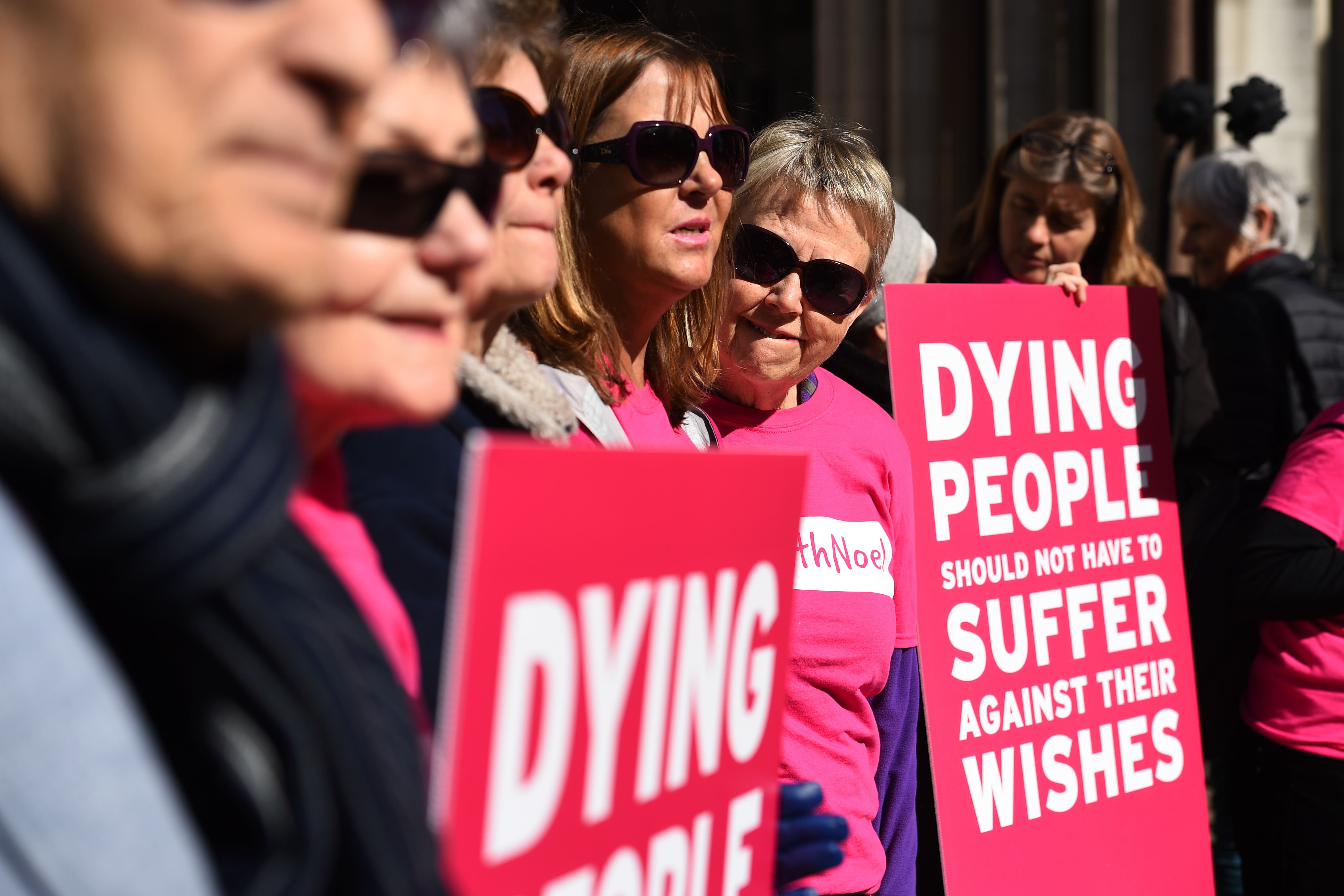Assisted dying ban ‘failing families’ as British membership of Dignitas soars
Campaigning organisation Dignity in Dying said the numbers are ‘evidence that the ban on assisted dying is failing British families’.

Your support helps us to tell the story
From reproductive rights to climate change to Big Tech, The Independent is on the ground when the story is developing. Whether it's investigating the financials of Elon Musk's pro-Trump PAC or producing our latest documentary, 'The A Word', which shines a light on the American women fighting for reproductive rights, we know how important it is to parse out the facts from the messaging.
At such a critical moment in US history, we need reporters on the ground. Your donation allows us to keep sending journalists to speak to both sides of the story.
The Independent is trusted by Americans across the entire political spectrum. And unlike many other quality news outlets, we choose not to lock Americans out of our reporting and analysis with paywalls. We believe quality journalism should be available to everyone, paid for by those who can afford it.
Your support makes all the difference.The number of British people who are members of Dignitas has soared by more than 80% in the past decade.
As of the end of December, there were 1,528 members from Great Britain, according to figures from the not-for-profit organisation, which assists dying patients with a “self-determined end of life”.
This had risen from 821 in 2012.
A total of 33 people from the UK had an assisted death at Dignitas in 2022 – a rise from 23 people the previous year.
The increase in Dignitas’ latest figures is concrete evidence that Britons are desperate for choice and control over their deaths
Campaigning organisation Dignity in Dying said the numbers are “evidence that the ban on assisted dying is failing British families”.
Currently, under the Suicide Act 1961, assisting someone to take their own life is an offence punishable with up to 14 years in prison.
In December, it was announced that the Health and Social Care Committee would hold an inquiry into the law on assisted dying, examining “different perspectives” in the often controversial and passionate debate, with a focus on the healthcare aspects.
Supporters of legalisation argue people should be able to help terminally ill loved ones who are experiencing great suffering to end their lives.
But a change in the law is opposed by many religious groups who say it would undermine the value society places on human life.
Dignity in Dying said while Dignitas has used both the terms GB and UK, their figures cover all four nations of the UK.
Sarah Wootton, chief executive of the campaign group, said: “It’s immoral that we are outsourcing compassion to Switzerland for the few that can afford it.
“The increase in Dignitas’ latest figures is concrete evidence that Britons are desperate for choice and control over their deaths.
“Assisted dying is an option for millions across the world, but still we do not have a British law for British people.
“A peaceful, dignified death on one’s own terms should not be behind a paywall.
“The parliaments of Jersey, the Isle of Man, Scotland, Ireland and France are recognising that doing nothing is simply not an option.
“Westminster is finally getting the message with the launch of the Health Select Committee’s assisted dying inquiry, but it must take note of these figures and the stories behind them.
“Each one is evidence that the ban on assisted dying is failing British families.”
In Scotland, Liberal Democrat MSP Liam McArthur plans to introduce a Member’s Bill which would legalise assisted dying for people who are terminally ill, although no date has been given yet for when this might be considered.
A public consultation on a Private Members’ Bill on assisted dying closed on the Isle of Man at the end of January.
A consultation on assisted dying proposals also took place in Jersey between October 2022 and January, and publication of a consultation feedback report is expected in April.